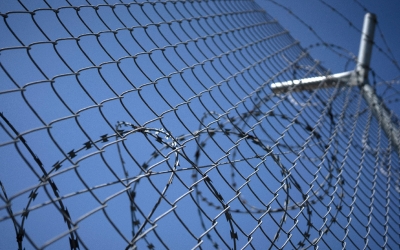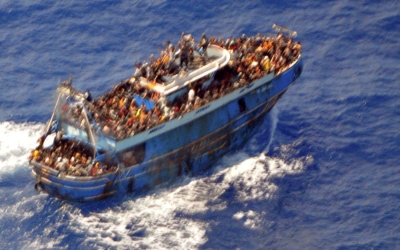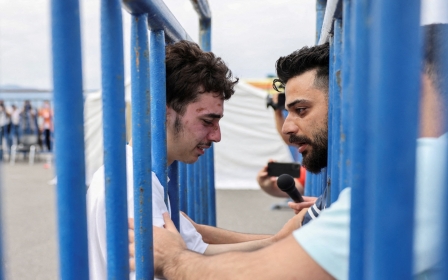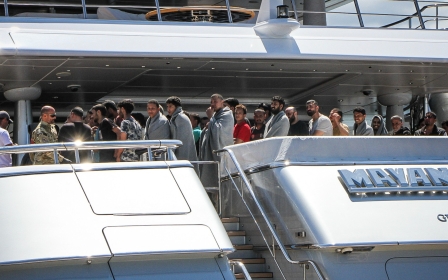Egyptians accused in Pylos shipwreck to stand trial after year in detention
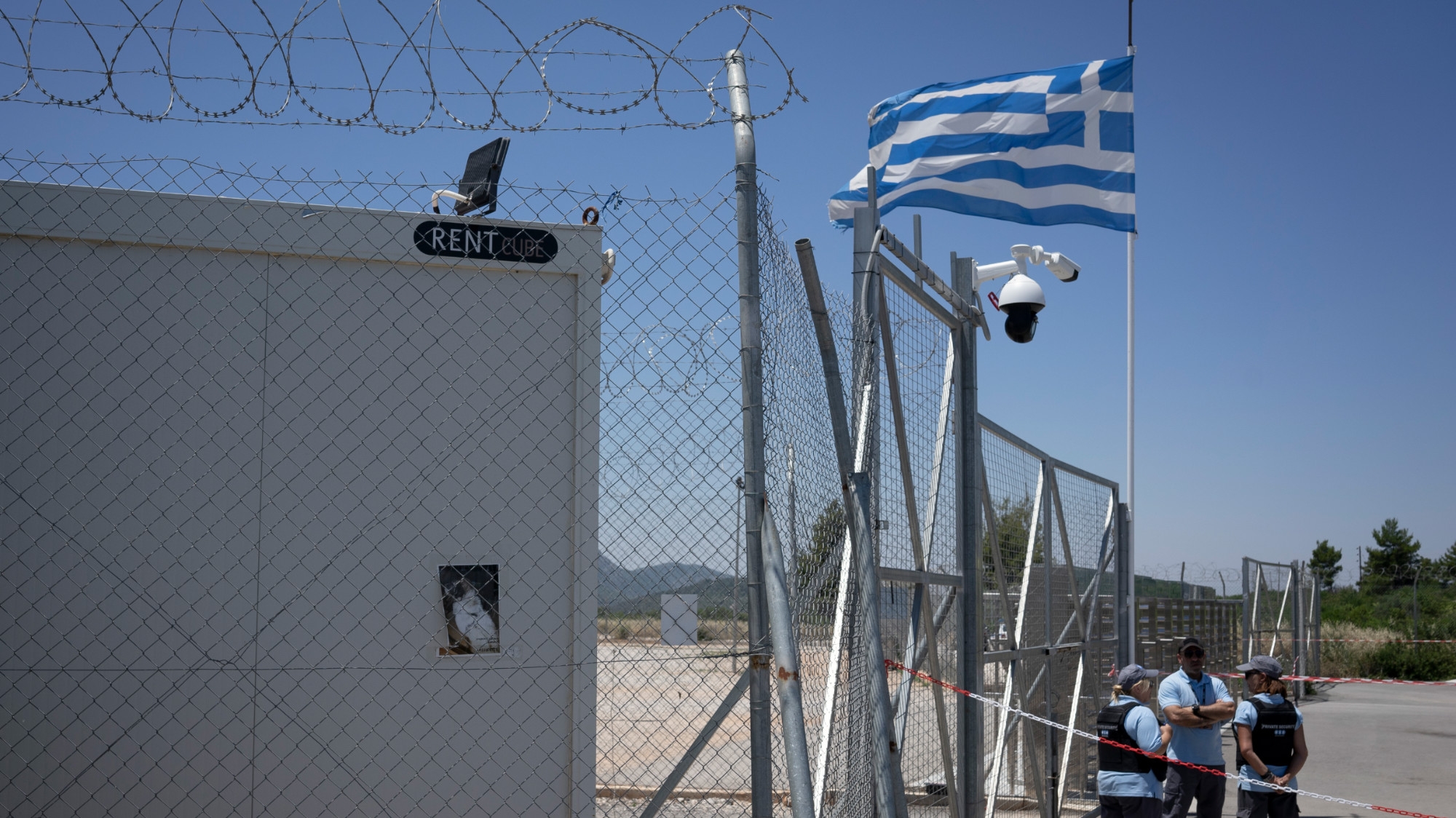
Mohammed** left Cairo for Libya on 28 May 2023 with his cousin. He was trying to reach Italy in the hopes of making enough money to support his three children and elderly parents.
Two days later he arrived in Libya and was immediately detained in a warehouse in the eastern city of Tobruk.
He was released after paying 140,000 Egyptian pounds (about $3,000) and boarded an overloaded fishing boat bound for Italy from Tobruk on the night of 9 June.
On 13 June, the boat sank off the coast of Greece's Peloponnese peninsula, in one of the deadliest refugee boat wrecks in years. Only 104 people survived, 82 bodies were recovered and over 500 are still missing.
His wife, Rabia** had heard from him just before he left, but then the news of the wreck exploded on social media. She had to wait a while to hear from him again, and when they eventually spoke, it was a very brief call from prison.
New MEE newsletter: Jerusalem Dispatch
Sign up to get the latest insights and analysis on Israel-Palestine, alongside Turkey Unpacked and other MEE newsletters
Responsibility for the wreck was pinned on Mohammed, along with eight other men, all Egyptian nationals, by the Greek authorities.
Almost a year later they are still languishing in pre-trial detention, charged with illegal trafficking of foreigners, organised crime and manslaughter by negligence. Should they be convicted, they will face life sentences.
After enduring months in detention, their trial date is set for 21 May at the Court of Appeal in Kalamata.
“We speak every 10 days,” Rabia told Middle East Eye. “The conditions in the prison are tough, he wants to see his kids.”
Left alone with the children in Cairo, Rabia is now the sole breadwinner, earning a living working at a nursery.
‘Mentally devastated’
Saeed** a 32-year-old carpenter, left the Sharqia governorate in northern Egypt for Libya on 28 May 2023.
He was spurred by the death of his newborn child - Saeed could not afford the cost of an incubator at the hospital.
With three other children and elderly parents to support, Saeed needed to make money quickly. So he sought a smuggler group on Facebook and paid 140,000 Egyptian pounds for his passage to Italy.
He boarded the fateful fishing trawler in Tobruk a week later with his cousin and a friend.
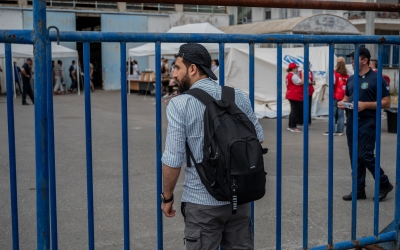
Saeed’s brother-in-law, Amer did not hear from him for two weeks following the wreck, only discovering that he was alive when he spotted his photo among images of the survivors.
Amer survived along with his cousin, but his friend is still missing.
Amer said that after months in detention, Saeed is “mentally devastated,” and that he had not received any psychiatric support following the wreck.
He told MEE that he had voice notes and social media messages between Saeed and the smuggler group to prove his innocence, but he was concerned this evidence would not be considered by the court.
“My biggest worry is that the trial will be politically motivated,” he said.
“I am confident that the evidence will acquit them, but I’m worried the judges will not follow the evidence and issue a politically motivated judgement.”
24 hours to find someone to blame
The nine men all deny any connection with smuggling networks and claim they paid for their passage to Italy.
They told Greek news outlet, OmniaTV that, shortly after their arrival in Kalamata, they were interrogated and pressured into signing documents without being aware of their contents by the Greek coastguard.
The accusations against them are reportedly based on testimonies from nine Syrian and Pakistani survivors who identified the men as performing tasks aboard the vessel like distributing water and trying to control the crowd.
The testimonies were obtained by the Greek Coast Guard, not by the Kalamata prosecutor in the days following the wreck, raising concerns about their credibility.
An investigation later revealed that some of the survivors’ statements used identical terms to describe the wreck, despite having different interpreters.
According to one of the solicitors representing the men, Effie Doussi, the testimonies were taken within hours of the survivors arriving in Kalamata, at night.
She said that the photos of the witnesses during the interviews were ‘inhumane,’ with some of them prone on the floor.
“It took them 24 hours to find someone to blame,” Effie Doussi told MEE.
A political trial
A report released in July, featuring 17 survivor testimonies revealed that the key smugglers behind the wreck had close ties with Libya’s eastern military commander, Khalifa Haftar.
Not one of the testimonies identified the nine accused men as being behind the operation.
A series of reports based on survivor testimonies has revealed the role of the Hellenic Coast Guard in precipitating the wreck by reportedly towing the vessel, causing it to capsize.
The country’s naval court subsequently launched a preliminary investigation into the Coast Guard’s role in the disaster, but there has been little progress almost a year on.
For Doussi, the charges against the nine men are intended to obscure the Coast Guard's culpability.
“This is a political trial and we know that from the very first moment, there was no evidence at the beginning to press charges against them,” Doussi told MEE.
A unique case
The Greek authorities closed the investigation in January, with requests for submissions of further evidence by the legal defence rejected.
According to Doussi, repeated requests for the wreck’s survivors to be interviewed were denied.
The legal defence also asked to see all the internal communications from the search and rescue centres in Greece and Rome and was refused.
Another request that the survivors’ phones, which were confiscated on their arrival in Kalamata, be submitted as evidence, was also denied by the authorities.
According to Doussi, the authorities initially denied that they had found the survivors’, despite survivors reporting that their phones had been confiscated as they arrived in Kalamata.
In August, Greek media reported that 20 mobile phones were discovered “in a bag on the coast guard boat".
In response to the repeated requests from the defence, the judge advised that the requests for evidence were only relevant to the criminal case against the Greek Coast Guard at the maritime court.
“For me [this case] is unique, we have handled many cases, where at least they tried to show that they can guarantee the right to fair trial. But this is not the case.”
According to Doussi, the survivors whose testimonies formed the basis of the criminal charges against the nine men, were initially not called to court. Their testimonies were intended to be read in court, which is not legal, while the only witnesses present in the court were the Greek Coast Guard.
However, in April, the court issued a new call for witnesses, following a similar case in which a lawyer objected to the absence of witnesses resulting in the trial being postponed.
“Let's see if these people show up, because we all know that they are afraid,” Doussi said.
Middle East Eye delivers independent and unrivalled coverage and analysis of the Middle East, North Africa and beyond. To learn more about republishing this content and the associated fees, please fill out this form. More about MEE can be found here.


